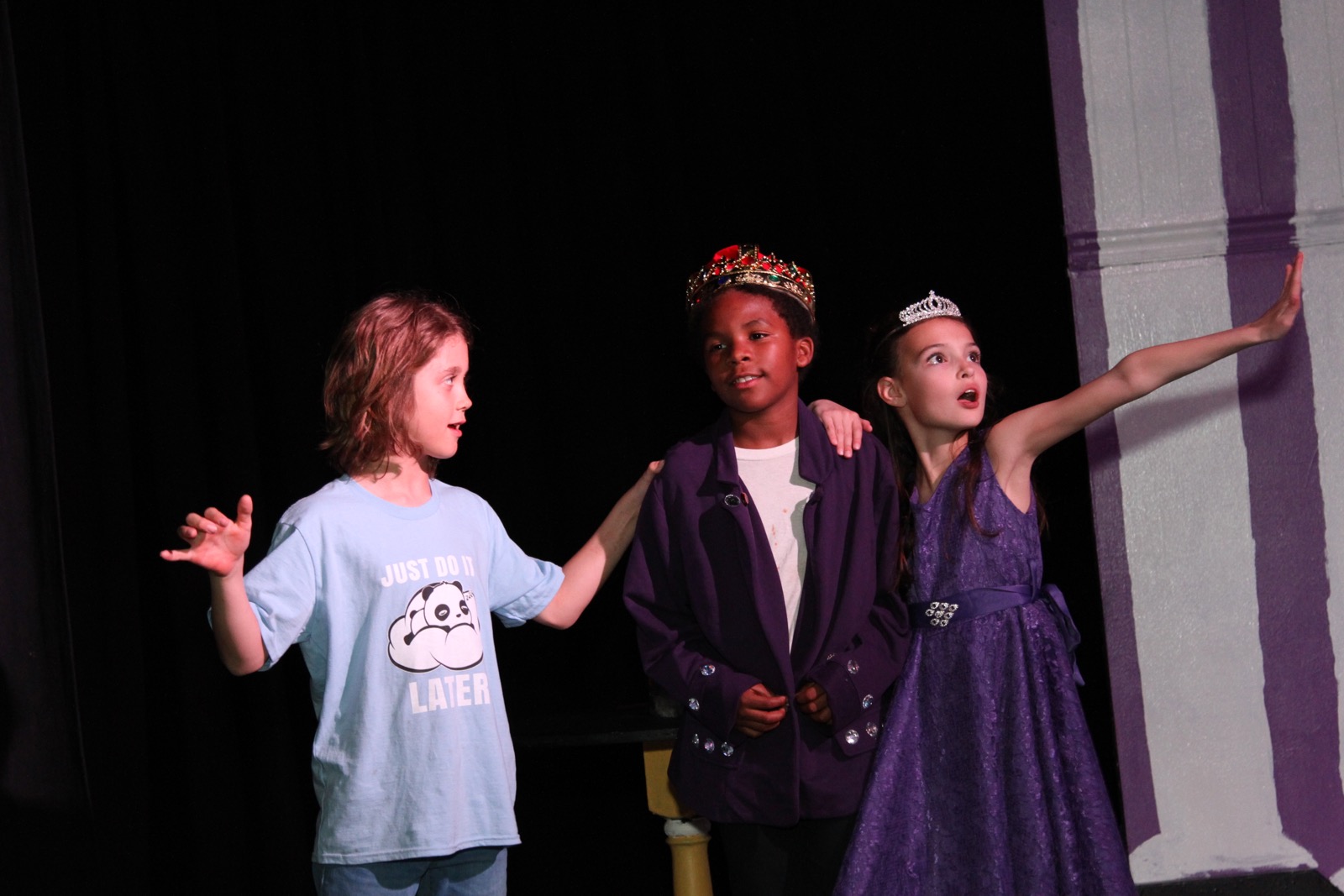By Charlotte Forcht
If you are participating in a full-length theatrical production for the first time, the process can seem intimidating. One crucial part of joining any community is learning their language. Familiarizing yourself with certain acting terms and phrases will help you feel less like an outsider and will make the whole experience much more enjoyable. Here is a glossary to get you started.
- Ad-lib
- Making up/paraphrasing lines
- Only recommended if a line is forgotten or if director specifically requests it
- Callback
- Second round of auditions in which selected actors are asked to perform scenes and/or songs from the show as certain characters
- Gives the director a chance for side-by-side comparison of the actors being considered for specific roles
- Scenes and songs are usually sent out via email several days beforehand
- Cheating Out (aka Turning Out)
- Angling slightly towards the audience during a scene with two or more actors, rather than facing each other directly and showing only your profile to the audience
- Sends the sound of the actors’ voices outward towards the audience
- Improves a scene visually, because it allows all the actors’ faces to be seen
- Cold read
- Performing a monologue or scene without prior preparation
- Sometimes requested in auditions or callbacks
- Often used for shows that involve a lot of improvisation
- Cue
- The spoken line or technical cue that occurs before your character’s line/s
- Memorizing your cues along with your lines enables you to know what to say AND when to say it
- Cue-to-cue
- Running only the technical cues (lights, sound, moving set pieces, moving props, etc.) and the speaking/singing/dancing moments that prompt a technical cue
- Often done during the first tech rehearsal
- Lots of sitting around for actors- books, homework, and/or other quiet activities highly recommended
- Cut (aka Audition Cut)
- Thirty to sixty-second portion of a song, usually a verse and a chorus, that best highlights one’s singing abilities
- Memorized and performed in auditions instead of full-length songs
- Preferably, for NTPA auditions, with an instrumental/karaoke track
- Monologue
- Portion of text from a play, musical, movie, book, etc. in which only one actor is speaking
- Usually about one minute long
- Memorized and performed in auditions to demonstrate one’s acting abilities
- Off-book
- Lines and cues completely memorized
- Actors who are off-book should still bring their scripts to rehearsal
- Specific deadline can be found in rehearsal schedules
- Usually expected about three weeks before opening night
- Opening Night
- The first performance of a show
- Placing a Target
- Picking a spot on the wall, usually at eye level, in which to imagine one’s scene partner when performing a monologue
- Helps actors get into character and remain focused on the scene
- New actors who are unfamiliar with this term will often look right into the director’s eyes while performing a monologue.
- This makes directors very uncomfortable. They are trying to take notes about your audition. Making direct eye contact with them during your monologue will make them feel as though they are being dragged into the scene themselves and forced into the role of your scene partner.
- This is also distracting to you, the actor, because the director will likely not be a good scene partner and will not react much, if at all, to what you are saying. If you imagine your scene partner out in the space, you can picture their reactions to your lines and react in turn, thus making the scene more believable for you and the audience.
- Projecting
- Speaking loudly enough for the entire audience to hear exactly what you are saying
- Not the same as shouting- shouting too much will strain your vocal chords and can lead to a sore throat or losing your voice
- Amplifying your voice using your diaphragm
- Sides
- Selected scenes from a show
- Used at auditions and/or callbacks
- Helps the director determine whether the role would be a good fit for you
- Tech Rehearsal
- Practicing the show with stage lights, sound effects, music, costumes, set pieces, props, etc.
- Held during the week before opening night
- Typically 3-5 nightly rehearsals between Sunday-Thursday
- Longer than other rehearsals
- Upstaging
- Standing in front of another actor during a scene in such a way that the audience cannot see them
- Do not do this unless directed

